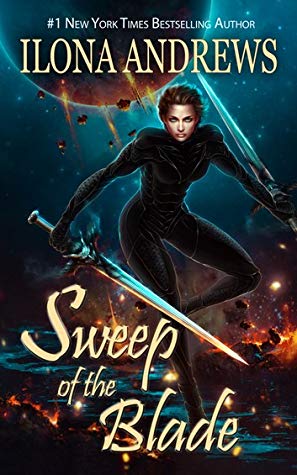 Sweep of the Blade (Innkeeper Chronicles, #4) by Ilona Andrews
Sweep of the Blade (Innkeeper Chronicles, #4) by Ilona Andrews Format: ebook
Source: purchased from Amazon
Formats available: paperback, ebook
Genres: science fiction, space opera, urban fantasy, vampires
Series: Innkeeper Chronicles #4
Pages: 314
Published by NYLA on July 16, 2019
Purchasing Info: Author's Website, Publisher's Website, Amazon, Barnes & Noble, Kobo
Goodreads
Maud Demille is a daughter of Innkeepers—a special group who provide ‘lodging’ to other-planetary visitors—so she knows that a simple life isn't in the cards. But even Maud could never have anticipated what Fate would throw at her.
Once a wife to a powerful vampire knight, Maud and her young daughter, Helen, were exiled with him for his treachery to the desolate, savage planet of Karhari. Karhari killed her husband, and Maud—completely abandoned by his family—has spent over a year avenging his debts. Rescued by her sister Dina, she's sworn off all things vampire.
Except... In helping Dina save the world, she met Arland, the Marshal of House Krahr, one of the most powerful vampire houses. One thing led to another and he asked for her hand in marriage. She declined. Arland is not used to hearing the word ‘no;’ and try as she might, Maud can't just walk away from Arland. It doesn't help that being human is a lot harder for Maud than being a vampire.
To sort it all out, she accepts his invitation to visit his home planet. House Krahr is extremely influential and Maud knows that a woman—a human, with a very questionable past—who's turned down a proposal from its most beloved son won't get a warm reception. Maybe she’s not sure about marrying Arland, but House Krahr isn’t going to decide for her. Maud Demille has never run from a fight, and House Krahr will soon discover that there's a lot more to Maud than they’re expecting.
My Review:
Vampires and politics. They go together like love and marriage. Complete with ALL the possibly messy endings. Along with the occasional happy ever after – as well as the rare but not unheard of “red wedding”.
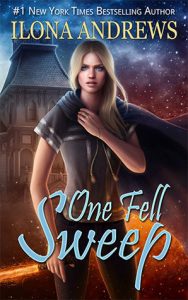 This is also a book that manages to be both considerably different from the previous books in the Innkeeper Chronicles and follow directly from its immediate predecessor, the marvelous One Fell Sweep.
This is also a book that manages to be both considerably different from the previous books in the Innkeeper Chronicles and follow directly from its immediate predecessor, the marvelous One Fell Sweep.
In this version of the universe, there is interstellar travel, and there are plenty of places and peoples in the very big galaxy, not all of whom are even humanoid. But Earth is not a participant in any of what’s “out there”. Because Earth sits on a very large and very rare nexus of space travel conduits, it has been declared a kind of intergalactic Switzerland – albeit one kept a bit in the space-faring dark ages.
Earth is off-limits to every species out there, and it’s an off-limit that’s enforced by everyone in return for safe passage through that nexus. Earth’s knowledge of the wider galaxy is confined to a group of people called innkeepers, who have complete control over the grounds of their inns. Inns that provide safe harbor, safe haven and safe rest-and-recuperation for any beings traveling through the nexus.
The story of the first three books has revolved around Dina Demille, daughter of two lost innkeepers, returning to Earth and taking control of the inn her parents left behind – and defending it from all comers, of which there have been entirely too many.
Dina’s adventures have been the heart of the first three books, and they are awesome. This is also a broad hint to start with the first book, Clean Sweep. This worldbuilding in this series is fascinating and grows with each new book in the series.
Sweep of the Blade is the story of Dina’s sister Maud. Formerly Lady Maud. Exiled and disowned ex-wife of one of the lesser ruling Vampiric Houses. There are vampire knights in this universe, but they are not much like our versions of vampires. On the other hand, the werewolves seem to be pretty much on the legendary nose.
I digress.
Maud survived a prison planet that spit her lying, deceitful, cheating husband out in little tiny pieces. And she, in her turn, avenged his death on every single one of his killers. Now she’s out, and safe, and home with her sister Dina.
But safe is not what Maud is built for. She could make a home with her sister, or become an innkeeper on her own. She could also, and more likely, become an enforcer for the innkeeper’s guild. Because Maud is a fighter – and she’s good at it.
However, Maud has a daughter, Helen, who is five years old and half-vampire by genetics, but all vampire in spirit. Earth, and the Innkeeper network, may be safe for Helen, but not what’s best for her. She’ll always be isolated and alone.
Maud’s other option is a tall, handsome hunk of vampire Marshall, who loves her, wants to marry her, and can provide Helen with a place where she can be who she is. Maud just has to accept.
But she can’t. She spent years as one vampire house’s trained human monkey, only to be discarded like trash for a crime her husband committed that she had no part of. She’s not willing to be anyone’s second class citizen ever again.
Arland offers her a place where she can fight to be first, for herself and for her daughter. She just has to survive every single thing, and every person, that his House can throw at her. Including a murderous attack by her potential mother-in-law and a pirate coup led by his House’s enemies.
And a very red wedding.
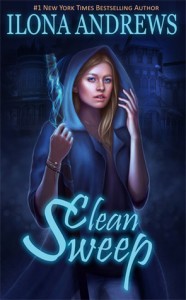 Escape Rating A+: This was a book that I gobbled up over dinner, and didn’t let go of until it was done. It starts with a bang, ends with a mic drop, and in the middle there’s the biggest and most delicious story of political skullduggery, underhanded betrayals, complex negotiations and epic romance.
Escape Rating A+: This was a book that I gobbled up over dinner, and didn’t let go of until it was done. It starts with a bang, ends with a mic drop, and in the middle there’s the biggest and most delicious story of political skullduggery, underhanded betrayals, complex negotiations and epic romance.
This series is awesome from beginning to end, but this entry is a bit different. The previous stories have been set on Earth, with the ever expanding galaxy of characters making their way to Dina’s inn. While there have been some epic battles, the fighting has all been defensive, protecting Dina’s inn and her varied guests.
Maud goes away from Earth and she goes on the offensive – even if that is sometimes in the sense of the best defense being a good offense. She has a goal, and for the most part it’s the same goal she’s always had – to protect her daughter at all costs.
She wants what’s best for Helen, and that means making a place for them among Arland’s ancient, respected and feared House. He is, in effect, a prince among his people, and if Maud is to stand at his side as his equal, she’ll have to earn that place. That’s the story here, of her earning that place – not by pretending to be a trained monkey, as she did in her first marriage – but by being her fighting self. And by letting Helen fight an appropriate number of her own battles.
It’s that fight that makes the story so much fun. There are maneuvers, there are counter-measures. There are wheels within wheels within wheels. The vampires respect strength, so that’s what Maud must project at all times – no matter how much she hurts or how wounded she is.
At the same time, she is underestimated at every turn, and has to walk a fine line between lowering her enemies’ guards and not letting them walk all over her. The way that she eventually earns her place is by combining her strengths, both as a warrior and as a human. And it’s glorious. And so is she.
I enjoyed this book so much because I really liked Maud and wanted her to succeed. She is both kickass and clever, and both of those characteristics were needed in order for her to defeat her enemies – as well as to earn her place in Arland’s House by defeating theirs!
Sweep of the Blade ends, thank goodness not with a cliffhanger, but with a truly thunderous mic drop that promises more story in this universe. I can’t wait.

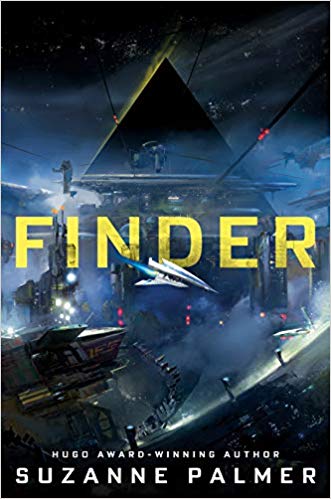 Finder by
Finder by 
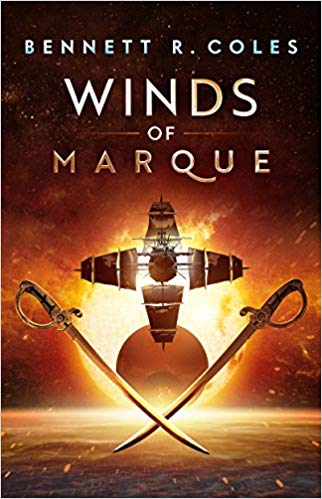 Winds of Marque: Blackwood and Virtue by
Winds of Marque: Blackwood and Virtue by  Doctor Who: Scratchman by
Doctor Who: Scratchman by 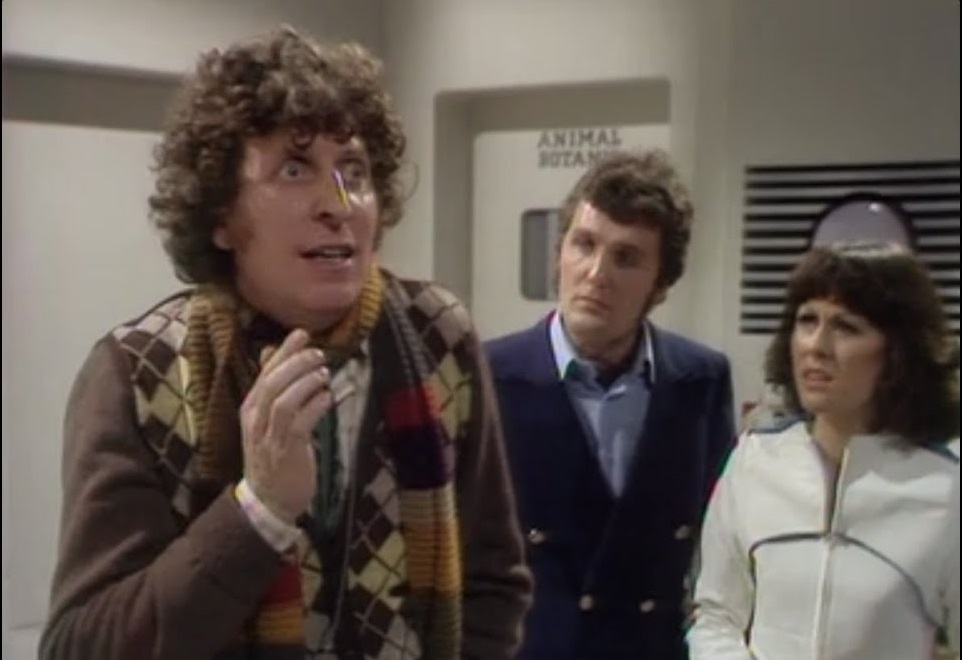
 Escape Rating A+: This is the point where I simply squee in delight. I had a ball, to the point where I laughed out loud on multiple occasions, often while on a treadmill in the midst of other people who must have thought I was a loon.
Escape Rating A+: This is the point where I simply squee in delight. I had a ball, to the point where I laughed out loud on multiple occasions, often while on a treadmill in the midst of other people who must have thought I was a loon.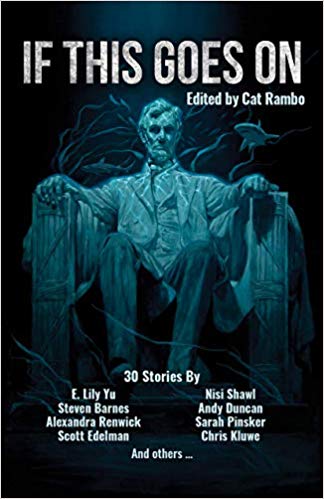 If This Goes On by
If This Goes On by 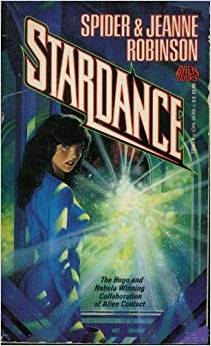 Stardance by
Stardance by 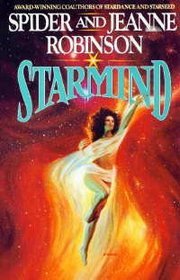 If this was the only work in this universe that Spider and Jeanne Robinson created, it would be enough; it tells us an epic story, with adventure, romance, thrills, and a bit of mystery. Even more, it challenges the reader to think about the nature of family and humanity. It’s definitely worth a look. Originally published in 1977, it has startling insight into the “progress” we’ve made in the years since its publication. But there are two other works in this trilogy (
If this was the only work in this universe that Spider and Jeanne Robinson created, it would be enough; it tells us an epic story, with adventure, romance, thrills, and a bit of mystery. Even more, it challenges the reader to think about the nature of family and humanity. It’s definitely worth a look. Originally published in 1977, it has startling insight into the “progress” we’ve made in the years since its publication. But there are two other works in this trilogy (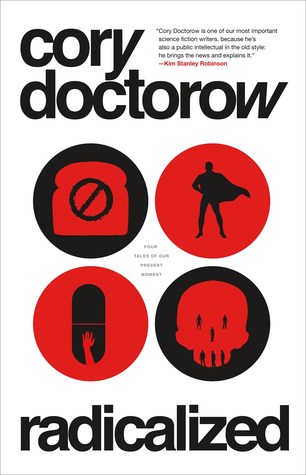 Radicalized by
Radicalized by 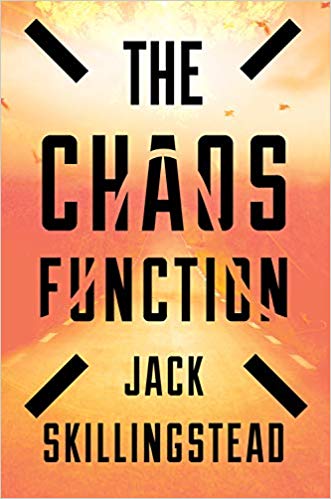 The Chaos Function by
The Chaos Function by 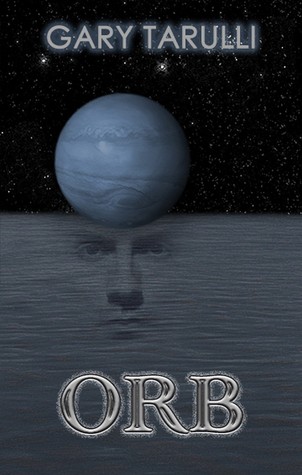 Orb by
Orb by 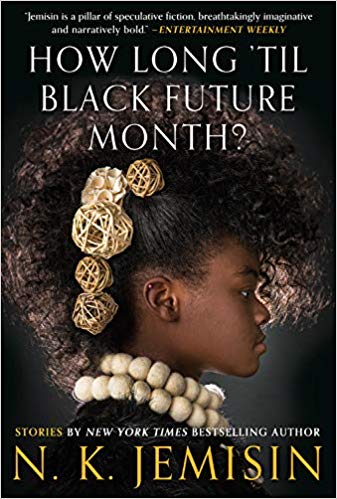 How Long 'til Black Future Month? by
How Long 'til Black Future Month? by 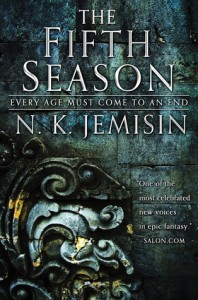 Personally speaking, I loved her
Personally speaking, I loved her